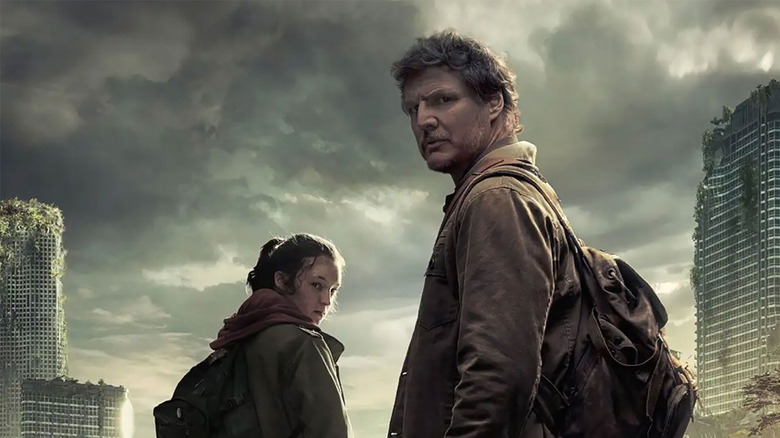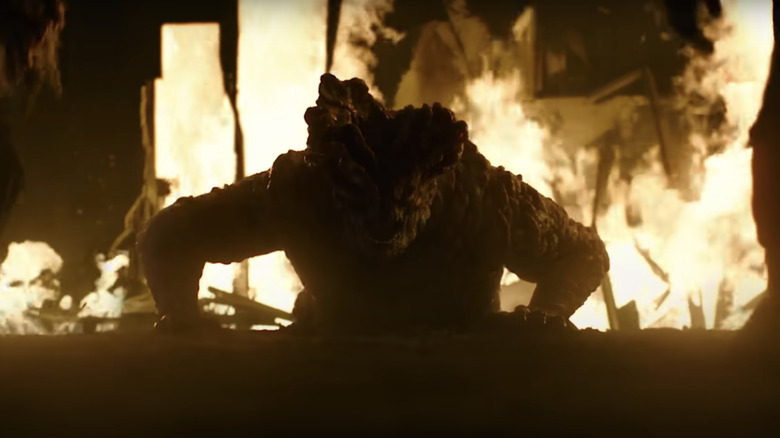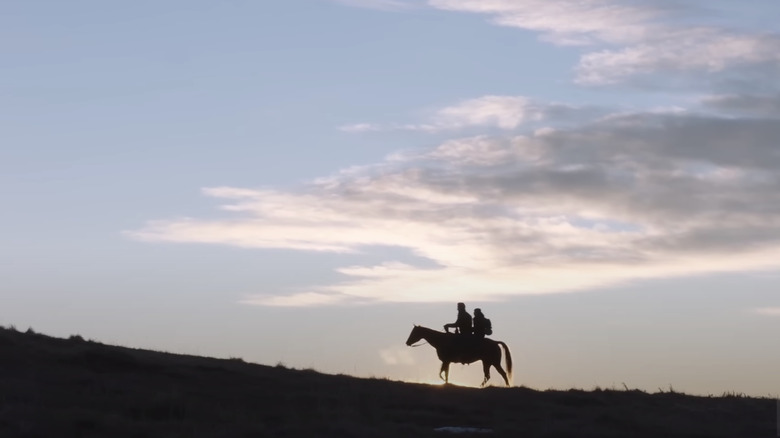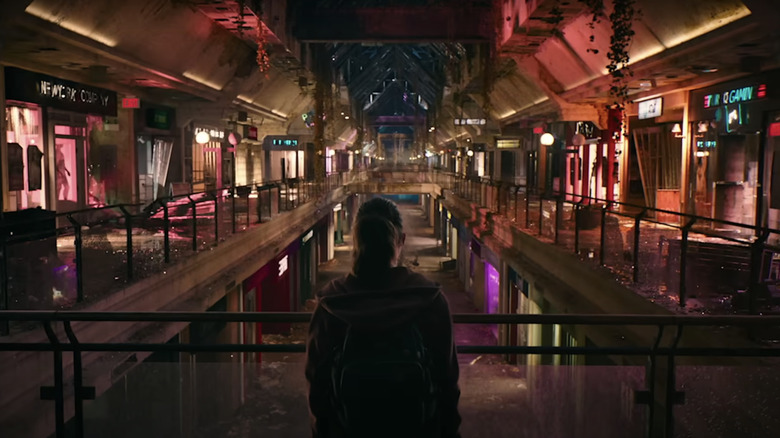The Last Of Us Was Intended To Be The 'Opposite Of Resident Evil'
Showrunner Craig Mazin has always known that taking on an adaptation of "The Last of Us" would be one of the biggest undertakings of his career so far. Breaking into the industry as a screenwriter, his previous credits mostly have involved incredibly lean "joke-per-minute" feature comedies like "Scary Movie" and "The Hangover," as well as so much uncredited work "that he's lost count," according to The Hollywood Reporter.
In 2019, Mazin helmed "Chernobyl," the first project of Mazin's career that he felt represented his true voice. It was a 10-episode limited series about the 1986 nuclear disaster in the Soviet Union that won 10 Emmys and landed Mazin an overall production deal with HBO in the process. It also convinced the original writer of "The Last of Us" game, Neil Druckmann, that the essence of his story could work in live-action. Mazin's "Chernobyl" had the right kind of atmospheric tension, themes of moral degradation amidst survivalism, and an apocalyptic aesthetic that could bring Joel and Ellie's world to life.
Here we are, just a little more than a week before the HBO series' premiere, and Mazin confirmed that he understood the pressure of getting the video game adaptation "right." So how did he do it? "The way to break the video game curse is to adapt the best video game story ever — not by a little, but by a lot," Mazin told THR. "So I flat-out cheated."
What makes a "zombie" story, according to Mazin, the greatest in the history of video games? For many, it was how deliberately intimate and grounded his story was compared to the norm. Druckmann shared that "The Last of Us" was intended to be the "opposite of 'Resident Evil,'" shattering usual expectations for a zombie video game.
Druckmann had trouble pitching 'The Last of Us'
"We wanted to do the opposite of 'Resident Evil' — which I love, but it's so over-the-top and you're fighting giant spiders and it's all about enemy variety," Druckmann explained to THR. "What if it's about intimate relationships — an exploration of the unconditional love a parent feels for their child and the beautiful things that could come out of that and the really horrible things that could come out of that?"
At the surface, it might seem as though Druckmann is quite dismissive towards the legacy of video games and the stories that were told before his 2013 Playstation exclusive, however, he openly recounted how hard it was to get "The Last of Us" off the ground. In 2004, Druckmann was assigned to pitch a zombie story for a computer class at Carnegie Mellon to George Romero himself. Taking inspiration from the Playstation 2 game, "Ico," as well as Frank Miller's "Sin City," Druckmann roughly sketched a pitch centering a surrogate father and daughter relationship. "And [Romero] didn't like it," Druckmann recalled. "He picked something else."
After being hired by Naughty Dog, he worked his way up as co-lead designer and co-writer to their action/adventure pastiche, 2009's "Uncharted 2: Among Thieves." The game was a massive critical/financial success (which ultimately led to the troubled production of Sony Pictures' adaptation of the game series, even though the studio says it's a hit), and Druckmann found himself in the lucky position to be able to freely pick his next creative project for the company. He returned to his scrapped zombie concept, now fleshed out in the form of a graphic novel draft, with fresh eyes.
A focus on narrative and minimalistic gameplay mechanics
There are multiple stages of infection in the world of "The Last of Us," a universe in which the real-life cordyceps fungus mutated to take over the minds of human beings: resulting in newly infected runners, late-stage stalkers, clickers, and tank-like bloaters. From pure enemy design aesthetics, one can see where comparisons to zombie games like "Resident Evil" could be made, but Druckmann's aspirations for his game were less about campy horror and more about studying human relationships in post-apocalyptic situations. Instead of "Resident Evil," think more "Children of Men," "City of Thieves," and "The Road."
"The Last of Us," especially compared to most other games about zombie apocalypses, is deliberately stripped back to focus on the narrative and characters first. Most gameplay mechanics are kept minimalistic; there are no over-the-top fancy weapons, no high scores, and no boss fights, much to the disappointment of a professional critic who came to play a beta version of the game while it was in development. "The Last of Us" wasn't what most gamers were looking for at the time. The quality of most mainstream blockbuster video game titles are mostly assessed by fun factor and playability, so narrative and story largely were seen as secondary elements rather than the core experience.
When "The Last of Us" officially released in 2013 on the Playstation 3, it quickly was praised as one of the finest games the medium has to offer. The original game, combined with its sequel, "The Last of Us Part II," would sell more than 37 million copies in total. Though he wasn't sure the industry was ready for it, Druckmann's priorities to use the medium of gaming's immersive qualities to tell a full, nuanced story had paid off.
A game made for television
In some ways, Mazin's claim that "The Last of Us" was the best way to break the "video game curse" holds some truth. The game itself is already written like television, split into different seasons and chapters that contain specific plot and character beats. Since Druckmann's original vision was so dense and mapped out, there's a sense that most of the work of thoughtfully plotting a video game's narrative to a new medium has been mostly done already.
Of course, HBO's "The Last of Us" is aiming even higher than just pleasing the fans and honoring the source material — Mazin and Druckmann also have their hearts set on expanding the story, world, and characters to fully make use of its new format as a TV show. Now that there's no "gameplay" to map out and design, some minor characters can have even more fleshed backstories, and Joel (Pedro Pascal) and Ellie (Bella Ramsey) can share many more quiet, existential moments together.
In film and TV, there's as much room for campy, indulgent horror like "Resident Evil," as there is for grounded stories of human connection like Druckmann's game, even if the former series hasn't properly found itself a worthy adaptation in live-action yet. When contextualizing Mazin's goal to break the mold and show the industry that video game adaptations can be viable, it's easy to see why choosing such a mature, innovative, and medium challenging story like "The Last of Us" was the way to go.



